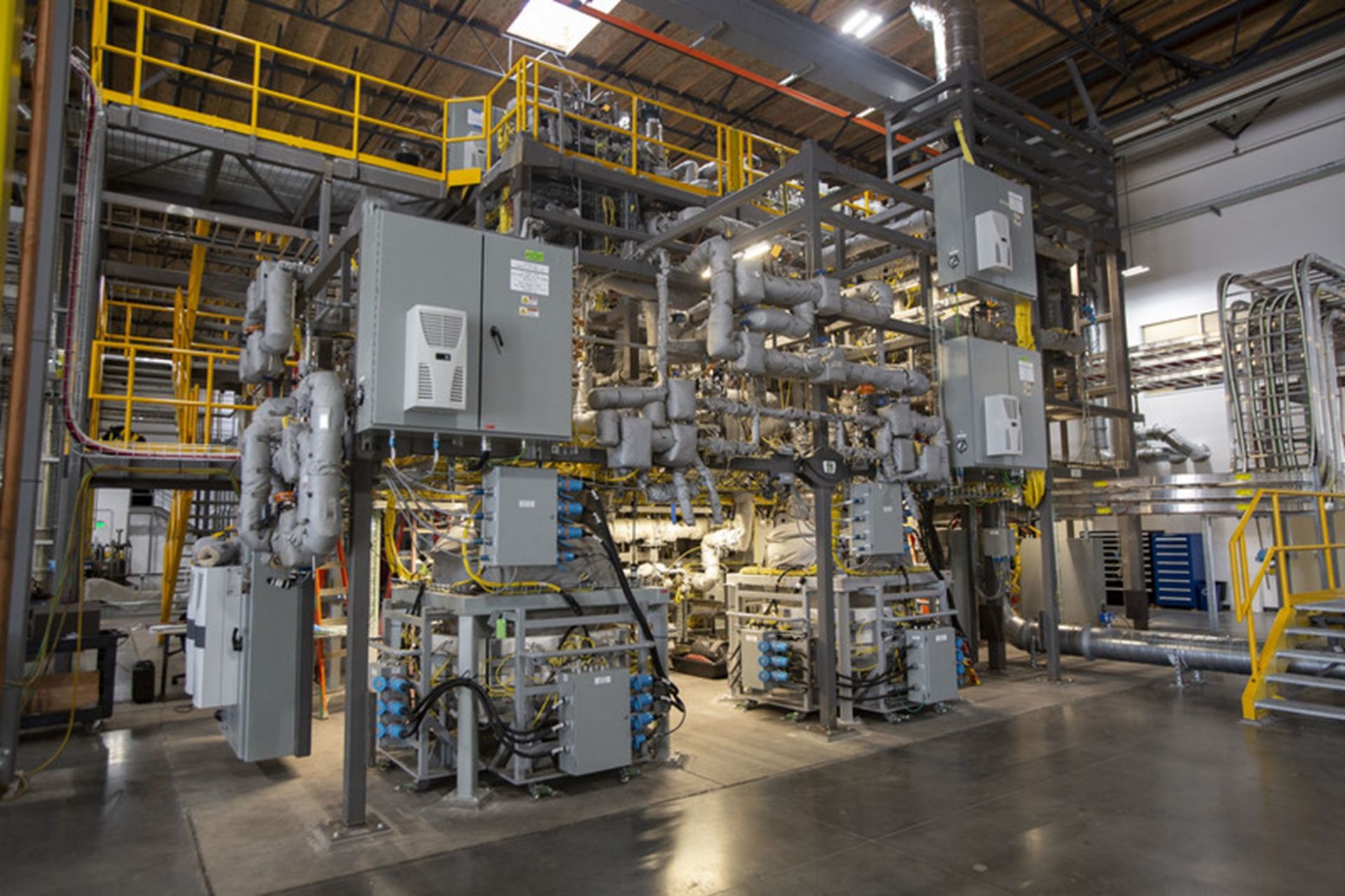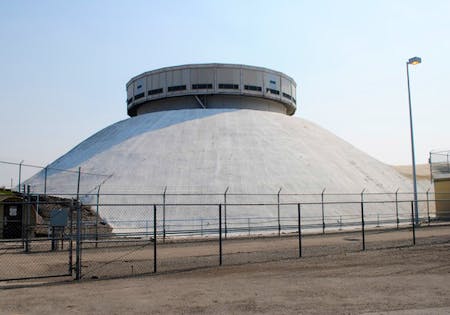The Integrated Effects Test at TerraPower’s laboratory in Everett, Wash. (Photo: Southern Company/TerraPower)
Southern Company, TerraPower, and Core Power (a U.K.-based firm focused on developing nuclear technologies for the maritime sector) have commenced pumped-salt operations in the Integrated Effects Test (IET) facility, the Atlanta, Ga.-based utility announced Tuesday, marking another milestone in the development of TerraPower’s first-of-a-kind, Generation IV Molten Chloride Fast Reactor (MCFR).
The former Zero-Power Physics Reactor cell at INL’s Materials and Fuels Center could be home to the MCRE. (Photo: INL)
MCRE could be built inside the ZPPR cell (shown here) at INL’s Materials and Fuels Complex. (Photo: INL)
A tiny 200-kWt reactor the Department of Energy says would be the first critical fast-spectrum circulating fuel reactor and the first fast-spectrum molten salt reactor (MSR) could be built and operated inside the Zero Power Physics Reactor (ZPPR) cell at Idaho National Laboratory’s Materials and Fuels Center (MFC). Details included in the Molten Chloride Reactor Experiment (MCRE) draft environmental assessment (EA)—released on March 16 for two weeks of public comment (later extended to four weeks, through April 14)—covered the potential environmental impacts associated with the development, construction, operation, and decommissioning of MCRE at INL, facilitated by the National Reactor Innovation Center (NRIC).
The Integrated Effects Test at TerraPower’s laboratory in Everett, Wash. (Photo: Southern Company/TerraPower)
“The world's largest chloride salt system developed by the nuclear sector” is now ready for operation in TerraPower’s Everett, Wash., laboratories. Southern Company, which is working with TerraPower through its subsidiary Southern Company Services to develop molten chloride reactor technology, announced on October 18 that the Integrated Effects Test (IET) was complete. The multiloop, nonnuclear test infrastructure follows years of separate effects testing using isolated test loops, and it was built to support the operation of the Molten Chloride Reactor Experiment (MCRE) at Idaho National Laboratory that the companies expect will, in turn, support a demonstration-scale Molten Chloride Fast Reactor (MCFR).





